Updated: November 17, 2023
Your child asked for a guinea pig. Your teenager suddenly wants a pet rabbit. Your family has been tasked with taking care of the classroom hamster for the weekend, and now all your kids want their own hamster. What is a parent to do?
A couple of generations ago, small exotic mammals like rabbits, guinea pigs, and hamsters would have been bought on the whim of a child’s ask, framed as a way of teaching children how to be responsible. While pets can still be a way to learn how to care for someone other than yourself, times have also changed in our thinking of small pets. As our understanding of these animals have grown, so has the recognition that “pocket pets” or “critters” require specialized care and a specific understanding of their unique nutritional needs, habits, and hard-wired behaviors.
Whether you’re a parent in the position of deciding whether to bring a small exotic mammal into your household, or a young adult looking for a unique companion animal, we’re so happy you’re here! Please read on about the considerations you should take before bringing an exotic pet home.
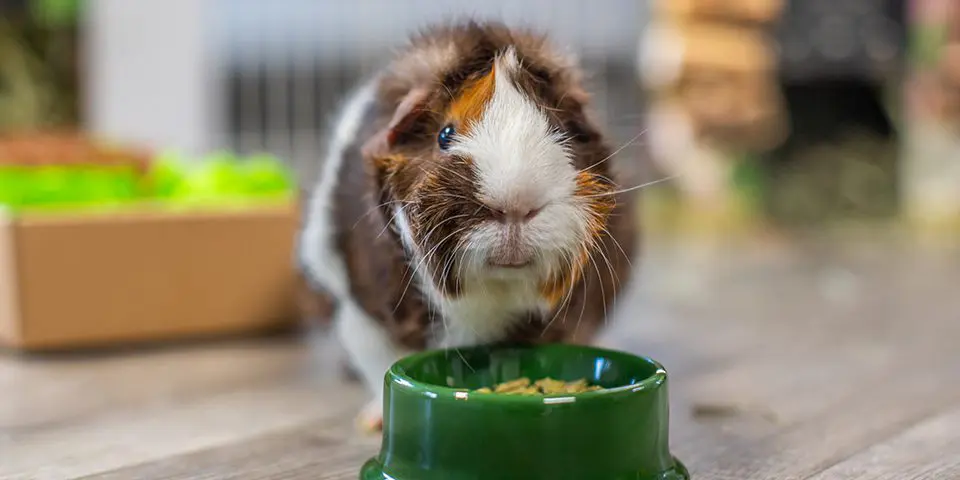
What is the Definition of “Exotic” as it Relates to Pets?
The term “exotic” is used commonly in the veterinary and animal communities as a broad stroke definition for pet species other than dogs and cats. In reality, this term can apply to many different species, all with uniquely different personalities and needs when it comes to key areas such as nutrition, housing, and care. Popular exotic pets don’t necessarily need to be mammals and could also be birds, reptiles, and amphibians. Our article, however, focuses on exotic mammals for pets.
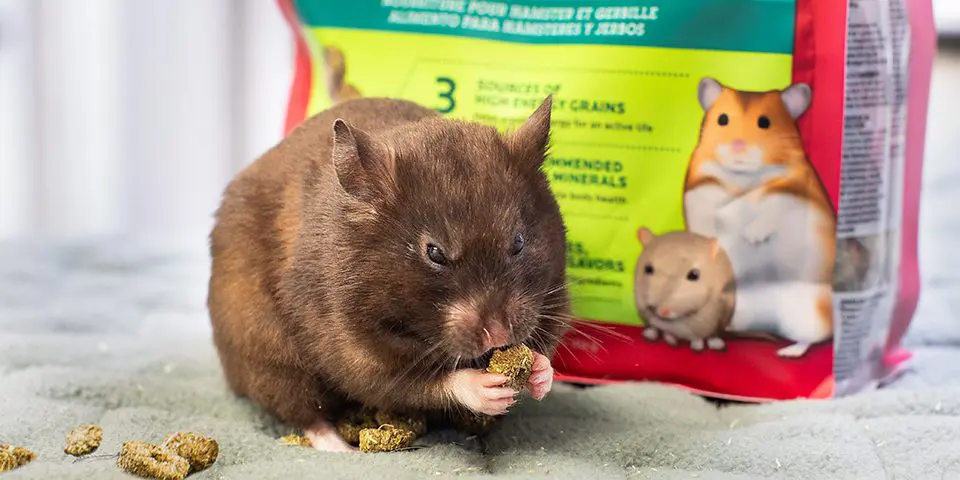
What Are the Most Popular Exotic Mammalian Pets?
- Rabbits
- Guinea Pigs
- Hamsters
- Mice
- Rats
- Gerbils
- Chinchillas
- Hedgehogs
- Ferrets
- Sugar Gliders
Why Should I Consider an Exotic Mammal for a Pet?
For prospective pet parents, there are many reasons to consider exotic mammals for pets when it comes to your family’s potential addition. Here are a few of the top reasons you might decide a small exotic mammal is right for you.
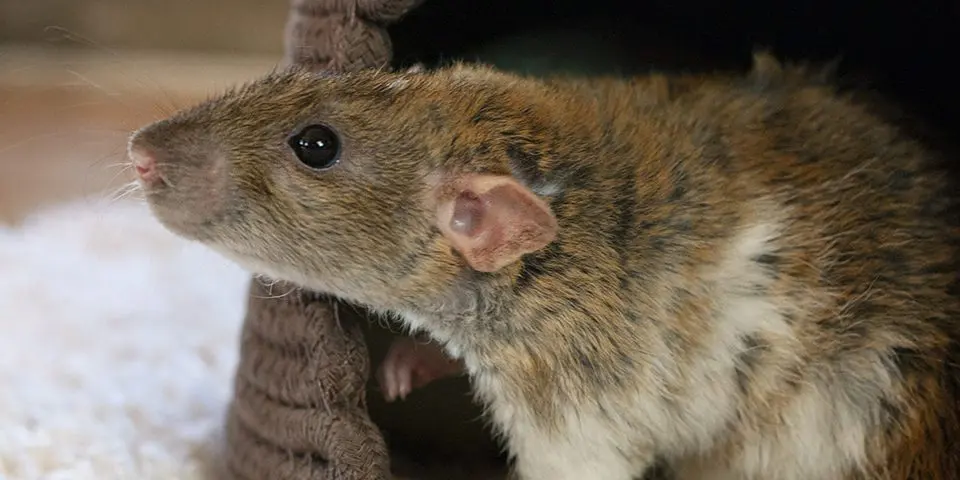
Exotic Mammals are Intelligent and Affectionate
Similar to dogs and cats, many popular exotic mammals are incredibly smart and lovable. They can enjoy playing, exploring, and even cuddling – just like their more commonly domesticated counterparts.
While it takes time and it can depend on the animal’s personality, many pet parents find that with a stable environment, consistent and calm interactions, and plenty of food for positive reinforcement, small exotic companion mammals will readily form bonds with their pet parents. While this bond will more easily come to animals that evolved to live in groups like guinea pigs and rats, even the pet parents of animals that live more solitary lives, such as hamsters and gerbils, can find meaningful, affectionate bonds with their small exotic.
In addition to forming lasting bonds with their pet parents, small animals are typically more intelligent than we have given them credit for in the past. Many small animals for example are good at learning tricks. A quick google search can reveal that rabbits, guinea pigs, and rats can learn a multitude of adorable and useful tricks (such as going into a kennel on command) with proper training from their pet parent!
With this in mind, it’s important to remember that every species is unique with key instinctual behaviors they never completely lose in a domesticated setting. For example, small exotic companion mammals are typically prey species by nature. This means they are more likely to be sensitive to perceived threats within their environment and may hide when alarmed. Because of this, pet parents need to be especially conscientious about providing an environment that is not often loud or unpredictable, and provide their small pet with plenty of hiding spaces in their habitat.
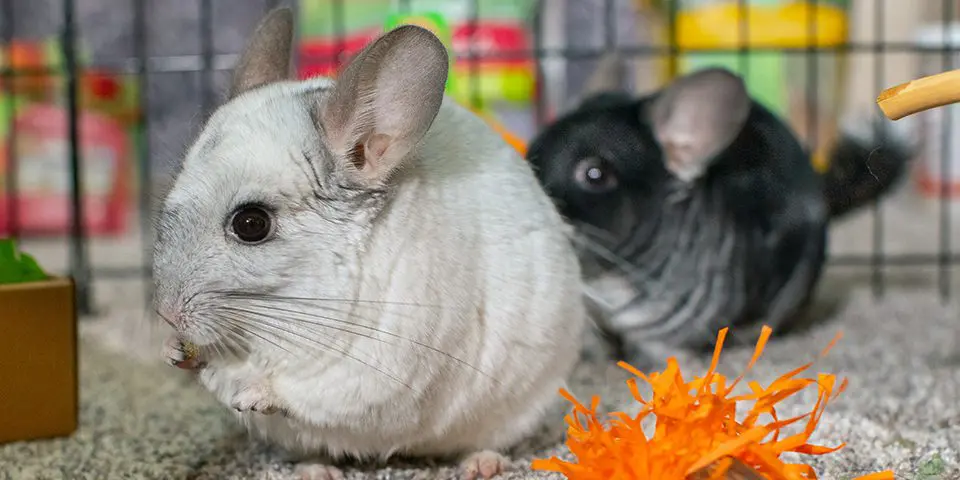
Exotic Mammals Can Live Long, Healthy Lives
For many years, there has been a sad misconception that small exotic pets are more likely to lead shorter lives. Thanks to considerable improvements in exotic animal medicine, nutrition, care, and education, this myth isn’t as persistent as it once was.
In reality, certain species of small exotic mammals such as rabbits, chinchillas, ferrets, and even guinea pigs on occasion, can live 10 years or longer when fed and cared for properly. Other species, such as rats, mice, hamsters, and gerbils, do have shorter lifespans, but this doesn’t diminish the joy they can bring into the lives of their caretakers.
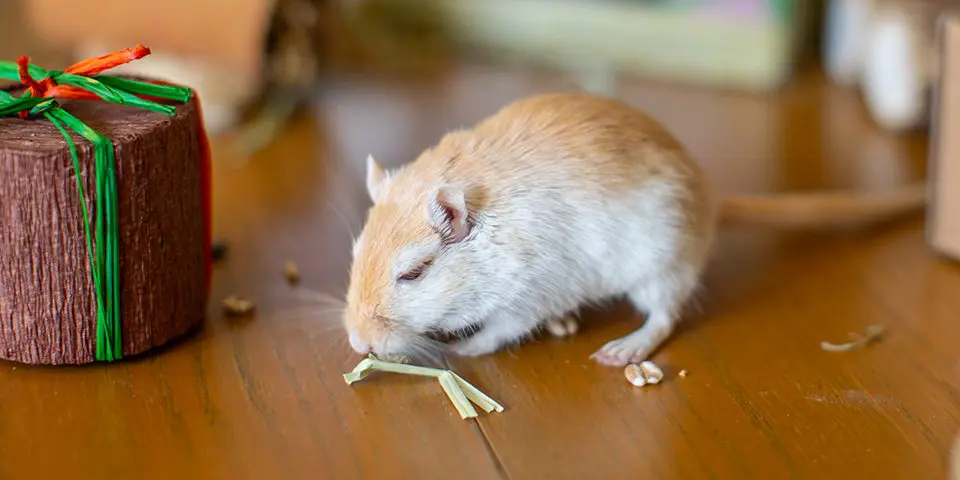
Small Exotic Mammalian Pets Have Unique Qualities as Pets
Dogs and cats are amazing animals, but they’re not the right fit for everyone. For example, maybe you don’t have the kind of big backyard or acreage that dogs need in order to explore and thrive. Or, maybe someone in your family is severely allergic to cats. Whatever the reason may be, many pet parents have discovered that small exotic companion animals are the perfect fit for their family.
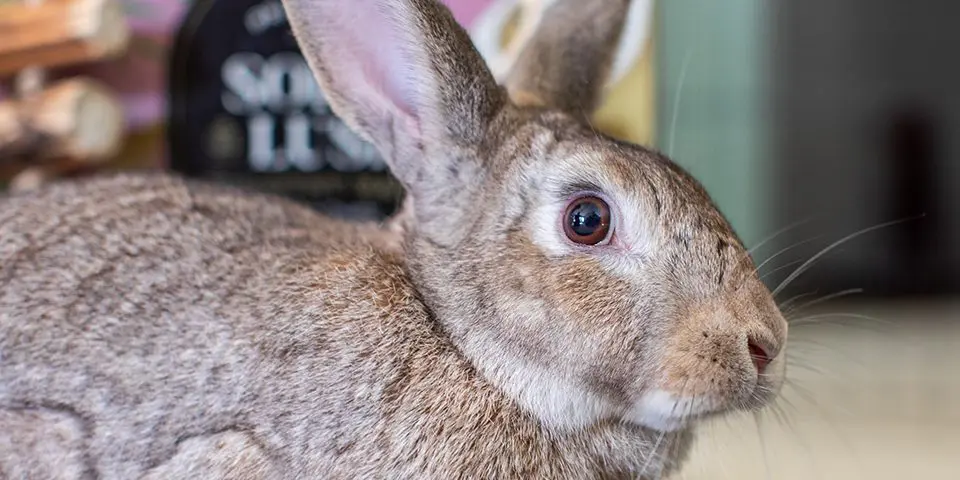
Exotic Mammals Have Interesting Personalities
If you’ve ever owned a dog or cat, you know there’s nothing better than when they joyfully express their emotions and unique personalities.
Small exotic mammals are no exception when it comes to having personalities. When they’re comfortable enough in their home setting to let their personality shine through, they often express themselves through body language and vocalizations. While we list a few behaviors here, we also have articles dedicated to guinea pig sounds and rabbit sounds.
Binkying: “Binkying” is a behavior rabbits exhibit when they are happy. A happy rabbit might perform an impressive, acrobatic jump or twist in the air. They jump for joy!
Popcorning: Similar to rabbits, guinea pigs will also jump up into the air when they’re happy. The main difference here is that it’s called “popcorning” for guinea pigs. Guinea pigs may not jump as high into the air as rabbits, but that doesn’t mean they’re any less overjoyed!
Boggling: “Boggling” or bruxing is a rat behavior. When your rat is happy or content, they may grind their teeth, causing their eyes to bulge in and out rapidly. While it may be a little disarming at first, it quickly becomes endearing!
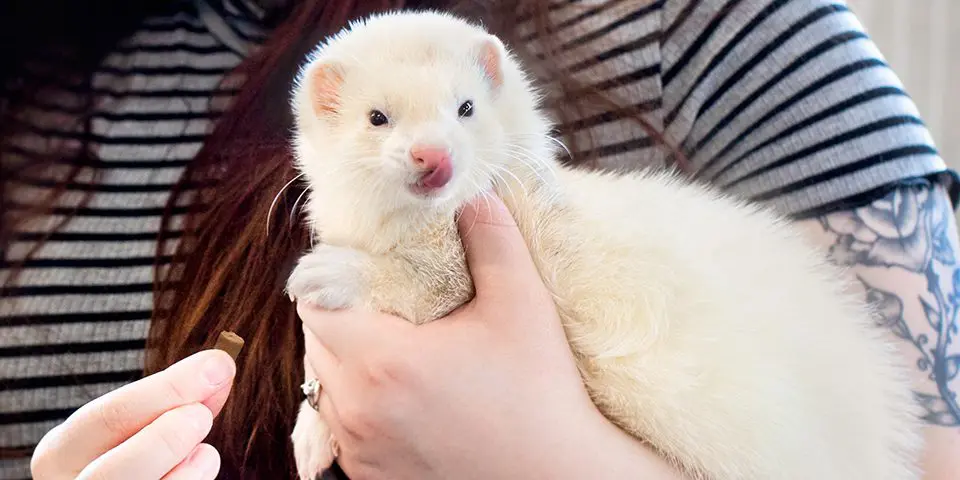
Important Questions to Ask When Considering Exotic Mammals as Pets
No matter which species you’re considering as a potential pet, it’s essential to read and collect information about these species in order to make an educated, responsible decision. Feel free to reach out to your local veterinarian with any specific questions you might have. In the meantime, start by asking yourself and your family important questions, including:
- Have we heavily discussed getting a small pet, or is this animal a surprise for the kids?
- Is there an experienced veterinarian in my area who can provide regular care for the species I’m interested in?
- Am I prepared to provide a safe and comfortable indoor environment for the animal?
- Can I afford to provide healthy nutrition, enrichment, and regular veterinary care?
- Am I ready to “pet proof” my home and all the areas the pet may explore?
- Can I provide ample space inside and outside the habitat to allow my pet to thrive?
- Have I researched the animal’s potential lifespan, and am I prepared to provide loving support for the entire life of the animal?
If you can confidently answer “yes” to these and other important questions, you are likely well on your way to a positive, life-changing experience for you and your future best friend.
For more information, please take a look at our blog and other educational resources to learn about these wonderful creatures and the care they require.
